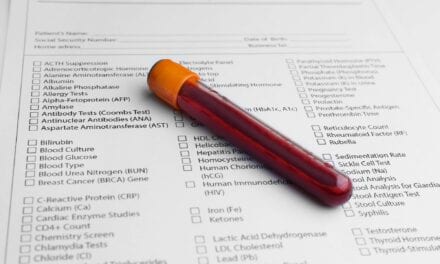Agendia Inc, Irvine, Calif, is collaborating with Angsana Molecular and Diagnostics Laboratory Pte Ltd, to bring the MammaPrint breast cancer risk-of-recurrence test and the BluePrint molecular subtyping test to the Southeast Asian market, including Brunei, Malaysia, Myanmar, Singapore, and Vietnam.
Physicians in these markets can now send patients’ samples, via Angsana, for testing at Agendia’s CLIA-certified and CAP-accredited laboratory, potentially affecting nearly 25,000 women diagnosed with breast cancer in the region each year.1
MammaPrint analyzes 70 genes correlated with breast cancer recurrence and identifies patients with early-stage breast cancer as being either low- or high-risk for distant metastasis within 5 years. BluePrint probes 80 genes to classify breast cancer into functional molecular subtypes with marked differences in long-term outcome and response to neoadjuvant chemotherapy.
The test results aid physicians in making informed personalized treatment decisions, thereby reducing the risk of overtreatment and associated side effects.
“We are seeing increasingly more physicians and patients in these countries recognizing the clinical utility of gene expression testing in tailoring the treatment management of breast cancer,“ says Chris Barbazette, chief commercial officer at Agendia. “Working with Angsana, we can most effectively serve these requests, improving access to the practice-changing benefits of the MammaPrint and BluePrint tests.”
“Breast cancer makes up almost one-third of all cancers diagnosed among women in Singapore and Malaysia. Importantly, more than two-thirds of these cases are discovered at an early stage, where survival rates are significantly higher,” notes Daniel Tan, MD, CEO of Angsana. “MammaPrint helps to empower these early-stage breast cancer patients by providing extra genomic information, enabling them and their oncologists to make informed, confident decisions about their treatment, and avoiding the side-effects of unnecessary chemotherapy. The test can also help to reduce the patient’s overall treatment costs, making valuable medical resources available for other patients.”
In 2016, the landmark Mindact trial found that nearly half of patients initially identified via clinical and pathological factors as being at high risk for cancer recurrence—and therefore considered to be candidates for chemotherapy—were in fact at low risk according to the MammaPrint test—and therefore unlikely to benefit from chemotherapy. The results of the trial highlighted the potential benefits of MammaPrint testing for both quality of life and cost-effectiveness.2
The American Society of Clinical Oncology (ASCO) recently published a dedicated update to its breast cancer clinical practice guidelines, naming MammaPrint as the only test of its kind recommended to inform treatment decisions for both lymph node-positive and lymph node-negative breast cancer patients. Other international oncology practice guidelines also recognize MammaPrint, including those of the European Society for Medical Oncology (ESMO) and the St. Gallen Breast Cancer Consensus.
For more information, visit Agendia and Angsana.
References
- Ervik M, Lam F, Ferlay J, Mery L, Soerjomataram I, Bray F. Cancer today [online]. Lyon, France: International Agency for Research on Cancer, World Health Organization, 2016. Available at: http://gco.iarc.fr/today. Accessed June 22, 2018.
- Cardoso F, van’t Veer LJ, Bogaerts J, et al. 70-gene signature as an aid to treatment decisions in early-stage breast cancer.N Engl J Med.2016;375:717–729; doi: 10.1056/nejmoa1602253.
- Krop I, Ismaila N, Andre F, et al. Use of biomarkers to guide decisions on adjuvant systemic therapy for women with early-stage invasive breast cancer: American Society of Clinical Oncology clinical practice guideline focused update. J Clin Oncol.2017;35(24):2838–2847; doi: 10.1200/jco.2017.74.0472.







